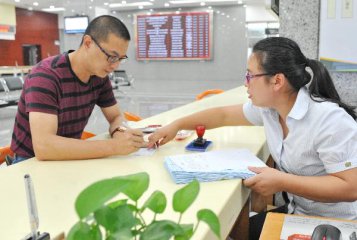Saroj Kumar Jha, World Bank's regional director for the Mashreq (Lebanon, Iraq, Syria, Jordan and Iran), made the promise during a meeting in Beirut with Lebanese Finance Minister Ali Hassan Khalil, the ministry said in a statement.
The World Bank will evaluate the impact of the current crisis on the vulnerable and poor people in Lebanon and contemplate necessary measures to help them, Jha said.
Lebanon, plagued by nationwide protests since October, has experienced an economic slowdown in the past few years.
The drop in cash injection from the Lebanese abroad has reduced the central bank's foreign currency reserves, leading to a shortage in U.S. dollars for businesses and individuals.
The rising demand for dollars has created a parallel market. One dollar is sold in the black market for more than 2,000 Lebanese pounds, which is higher than the official exchange rate.
About 30 percent of Lebanese live on less than four U.S. dollars a day while 300,000 others are considered extremely poor, according to the UN Development Programme's report Rapid Poverty Assessment in Lebanon.




















Latest comments